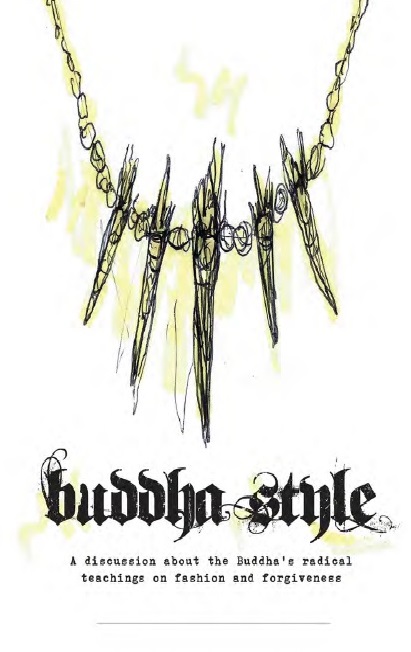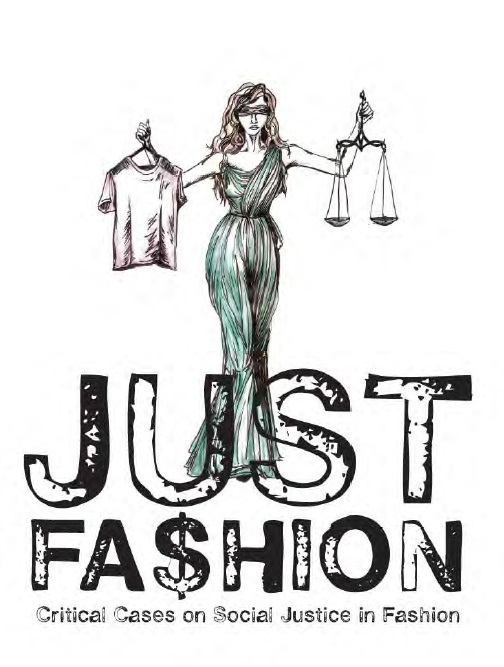We’ve added two new books to our required reading list, and you should to! While one approaches fashion through a Buddhist lens, the other looks to draw connections between fashion and justice in the context of democracy – both are by-products of separate investigations led by Otto von Busch in 2012.
Buddha Style: A discussion about the Buddha’s radical teachings on fashion and forgiveness asks: “What Would Buddha Wear?”
The publication documents a conversation between Otto von Busch and Josh Korda, covering identity, impermanence, imitation, non-self, temptation and consumerism and even David Bowie!
Questioning the relationship(s) between fashion concepts, theories and systems with/against Buddhist teachings and practice, new insights emerge.
An excerpt from the text under Indentity:
“We can express some aspects of our personality or world view through fashion. Likewise, we can come to see an aspect of another person through their dress or style, and also some traces of their attitude and skills. But at the same time we can simultaneously “objectify” these signals and make the person only a sum of their visually expressed parts. If we are to take the signals sent through clothing seriously, how can we cultivate an “honest” perspective on our dressed peers?” (Page 21)
For me, this was not a book to simply read, but more a book to sit quietly with, for thoughtful reflection.
Just Fashion: Critical Cases on Social Justice in Fashion is a fantastic resource for/from an every growing community of responsible fashion students and learners. This book was developed in the fall of 2012, via the “Critical Fashion and Social Justice” course at Parsons The New School for Design in New York.
The text covers a broad range of social justice issues, including marginalization, the ‘paradox of aid’ and worker rights, asking “[c]an fashion somehow address the world’s injustices – or can it only feed, and even celebrate, the imbalances of the world?” (Page 9)
An excerpt from the text on “Fashion, Justice and Dependence”:
“Through fashion we think we have equal opportunities, a fair distribution of goods and possibilities, and even that a “democratization” is taking place through fast fashion, as more people have access to a styled life. We are made to believe we have access to fashion while we are simultaneously and bluntly locked out of any decision-making, or any act of empowerment or self-determination, as the goods are already on the hanger awaiting us.” (Page 11)
Digital versions of each are available for free download through selfpassage, with hardcopies available at amazon here and here.
Happy reading!






